We were lucky to catch up with Sam Clawson recently and have shared our conversation below.
Sam, thanks for joining us, excited to have you contributing your stories and insights. We’d love to hear the backstory behind a risk you’ve taken – whether big or small, walk us through what it was like and how it ultimately turned out.
I’ve been interested in the synthesis of pop and orchestral music for a long time. One of my favorite albums is the Gregory Alan Isakov collaboration with the Colorado Symphony. Last year I got to arrange orchestral arrangements of a few songs from The National Parks latest album: 8th Wonder. And it all came about through the most Hail Mary-esq shot in the dark text to the lead singer. I happened to get the singers number through my brother-in-law and I just sent him a text. I put it off for months, actually, but then figured I might as well shoot my shot. The rest is history. But I do want to point out that not only was I shooting my shot with the proposal to the band in general, but I’d never done anything like this before, so I had to learn on the go. I’d scored a lot of indie films, I’d conducted some small recording sessions, but working with the band, and a whole orchestra was something that really stretched me. Looking back, even though I was absolutely terrified in the moment, I’m so glad that I was willing to stretch myself so I could have that amazing opportunity.
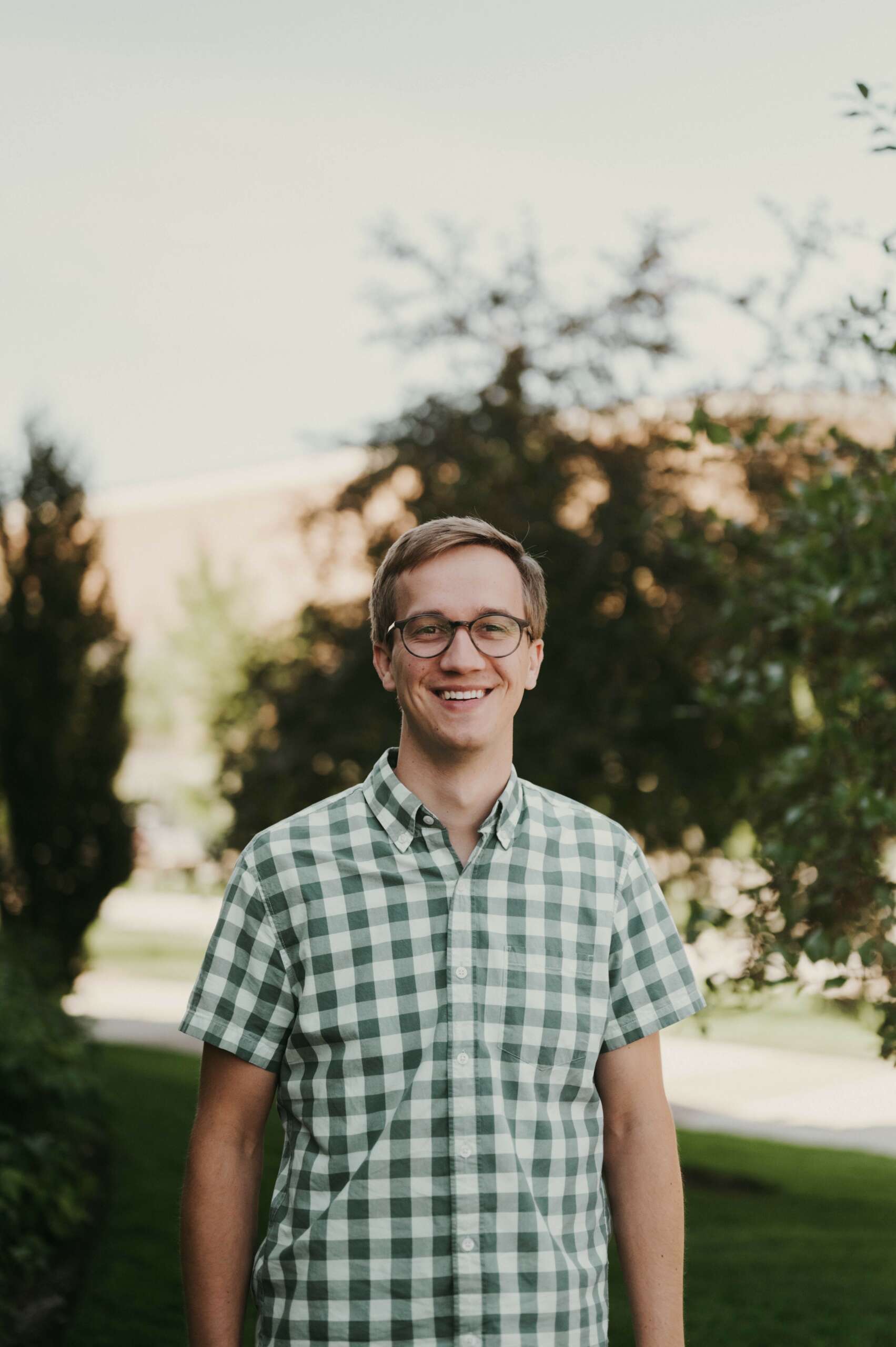
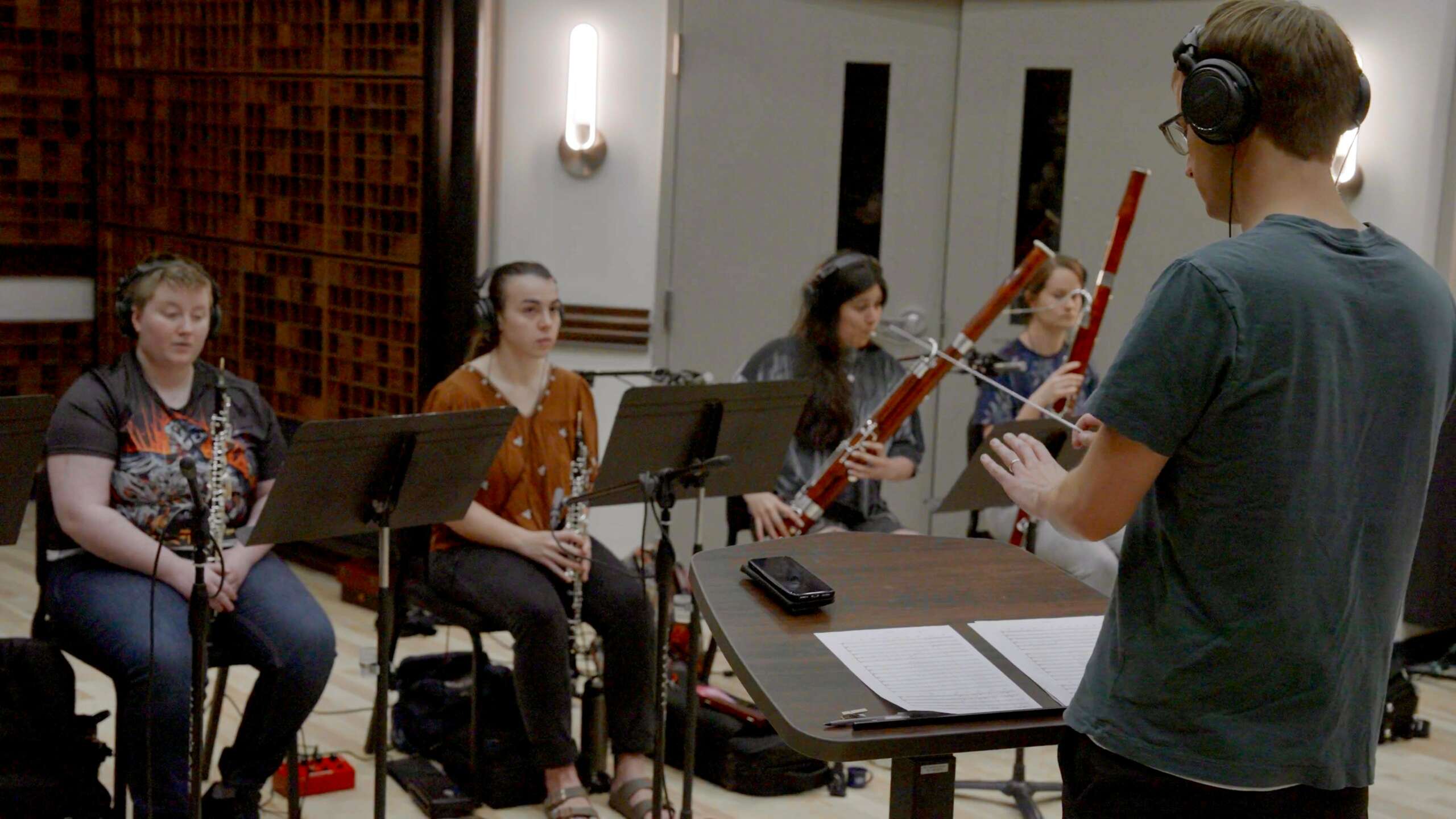
Awesome – so before we get into the rest of our questions, can you briefly introduce yourself to our readers.
I’m a composer and arranger by trade, but like most of us, my musical beginnings were in performance. I didn’t grow up in a particularly musical family, but my parents were always really supportive of my interests and early on I got involved in musical theater, band, choir, and later in orchestra. My instrument is tuba and I played all growing up and through college. I didn’t start writing music until I was a sophomore in college actually.
A lot of my early influences were bands like Coldplay, The Killers, Keane, but also lesser known artists like Sufjan Stevens, who was really innovative, I would say, in incorporating orchestral instruments in his songs, which is something that I became very fascinated with early on.
Many of my most impactful, healing experiences in music have come in sacred music settings, at my home church in Chicago, or while I was working as a missionary in the Atlanta area and got to experience a lot of evangelical musical traditions. I mention this because spirituality has played a big part in shaping my career goals. I don’t plan on writing overtly sacred music, though. That said, whether you identify with a certain faith or not, I think we all agree there is something big picture, something almost out of body about experiencing beautiful art. So, my primary goal as a composer is to create art that connects with, lifts, and serves those who experience it in the most meaningful, authentic way possible. Music is my way of giving back to the world. To steal something producer Dee Kei Waddell said, “music is scalable therapy.”
Anyway, (steps down from his soapbox) long story short I graduated from high school and started studying pre-med in college, but also took some music production classes, and became really interested in film scoring in particular. I wrote music for some student films, and eventually decided to go all in into music.
So, all in all, I got into composing relatively late. But I don’t regret that. Whatever small amount of talent I have as a composer I attribute to my experiences as a performer first, playing in orchestra all through college, as well as in a traditional jazz band. Being well rounded as a performer has really served me well as a writer.

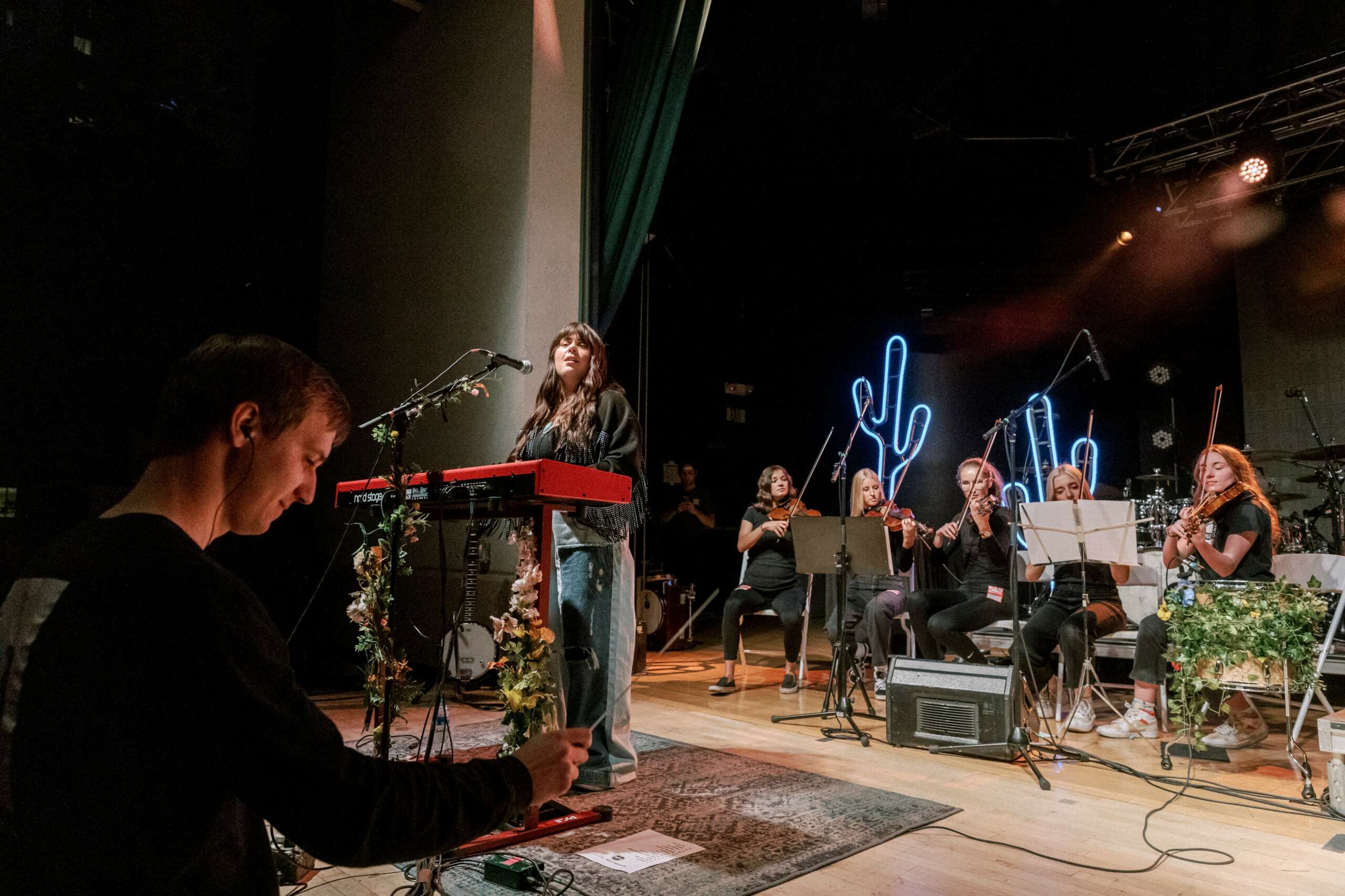
Are there any books, videos or other content that you feel have meaningfully impacted your thinking?
I’m a naturally shy/insecure person, but my most meaningful opportunities in music have always come from putting myself out there even when I didn’t feel qualified for a certain job/project. The general principals that I’ve found most helpful in my career so far are these:
1. Fail fast. This is something I heard from producer Steven Skunberg on a podcast years ago and never forgot. Basically the same idea of “you miss every shot you don’t take.” I apply this to everything: cold contacts to get new clients, producing social media content, projects for existing clients, etc. Let me be clear, I always do my best work, but I’m young, I’ve got a lot to learn, so I try not to hyperventilate about rejection, or why my career isn’t exploding like it does for some artists. For most of is, it’s the long road. It’s a grind—it’s one failure after the next. More attempts, more practice, more failure = more success. Fail fast.
2. Don’t let production get in the way of inspiration. I’m not a great mixing engineer, and I stress about that—but I try to let that go as much as I can. Composition value always holds more weight than production value. Both are important, yes, I’m constantly buying more plugins, more gear, but one thing I’ve realized is that if I’m not careful that stuff can distract me from what matters most: authenticity and connection with my audience. Some of my favorite songs have objectively bad recording quality, mixing, etc. but the songwriting is gorgeous so it doesn’t bother me. We live in culture where we obsess about perfection. But most consumers today will take authenticity over perfection any day.
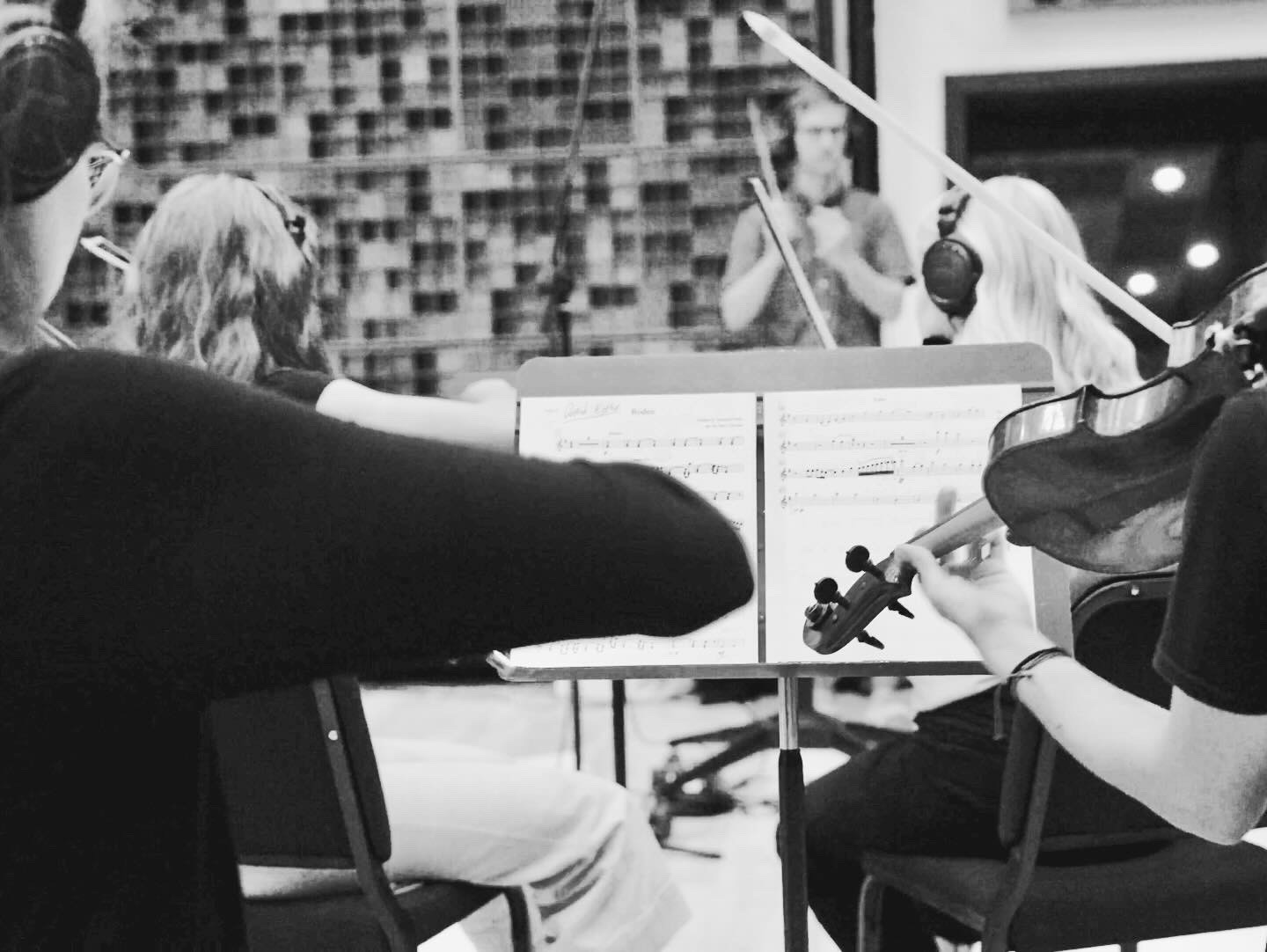
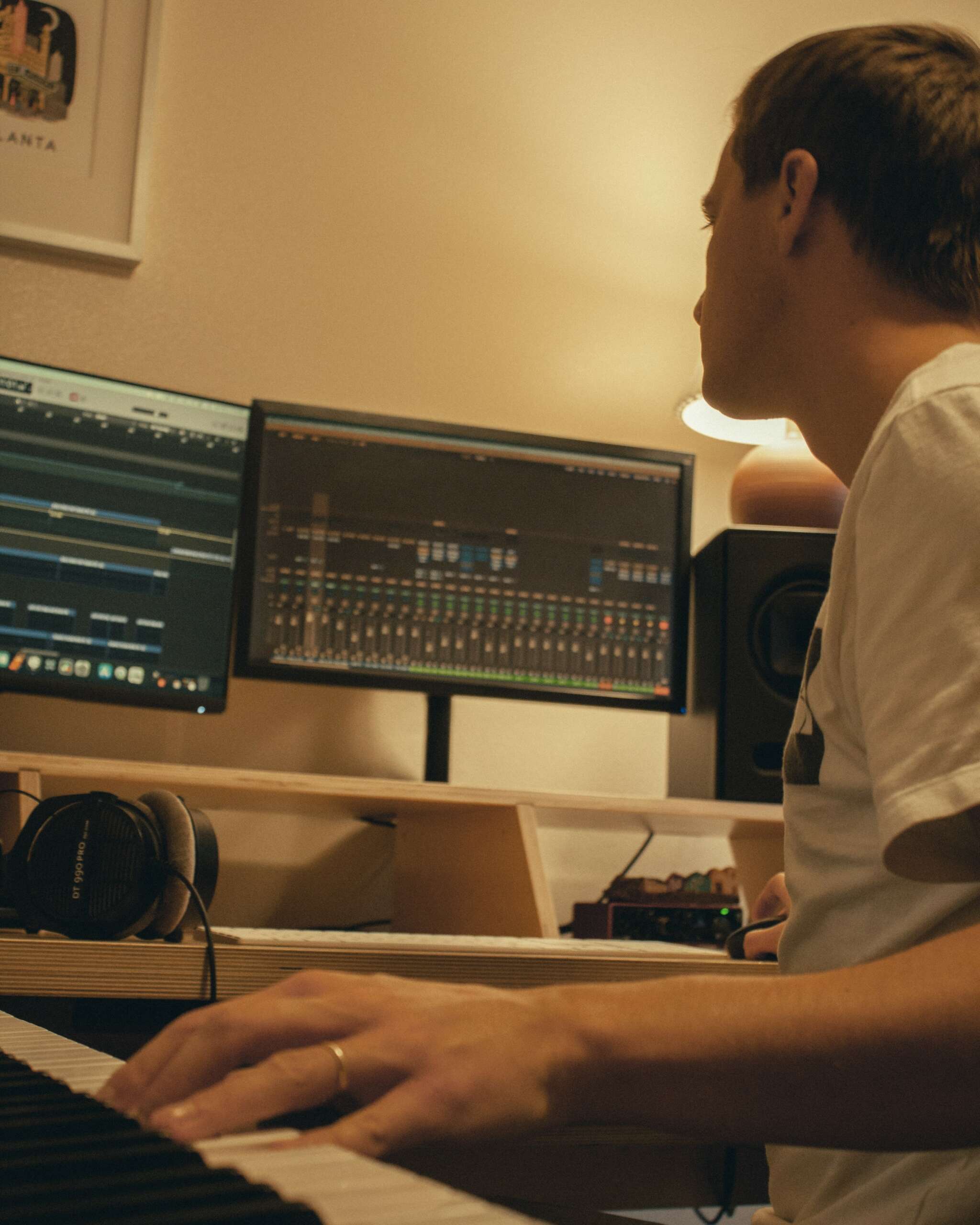
Let’s talk about resilience next – do you have a story you can share with us?
I talked a little about switching my major while I was in school. What I didn’t mention is that when I first applied to the composition program at my university I got rejected. It was a huge blow to my self-confidence, to say the very least. I was able to reapply and get accepted about six months later, but then I had to face the challenge of getting through the rigorous music theory classes: two years of sightseeing, aural skills and music theory. At the time, I couldn’t even read treble clef.
I remember a distinct experience of sitting in my first theory class, and the guy next to me had perfect pitch. Like he was actually calling out notes and chords as the professor played them on the piano. I never saw that guy again the whole semester, because he stopped coming to class haha. The stuff was so easy for him, and most of my other classmates, and here I was struggling to understand the most basic concepts. Anyway, the point here is I wish I would’ve spent less time comparing myself to others. I’ve had a great career so far, I’ve won some awards, worked on some really cool projects. If I’d quit just because I struggle at music theory when others picked it up naturally, it would’ve been a huge mistake.
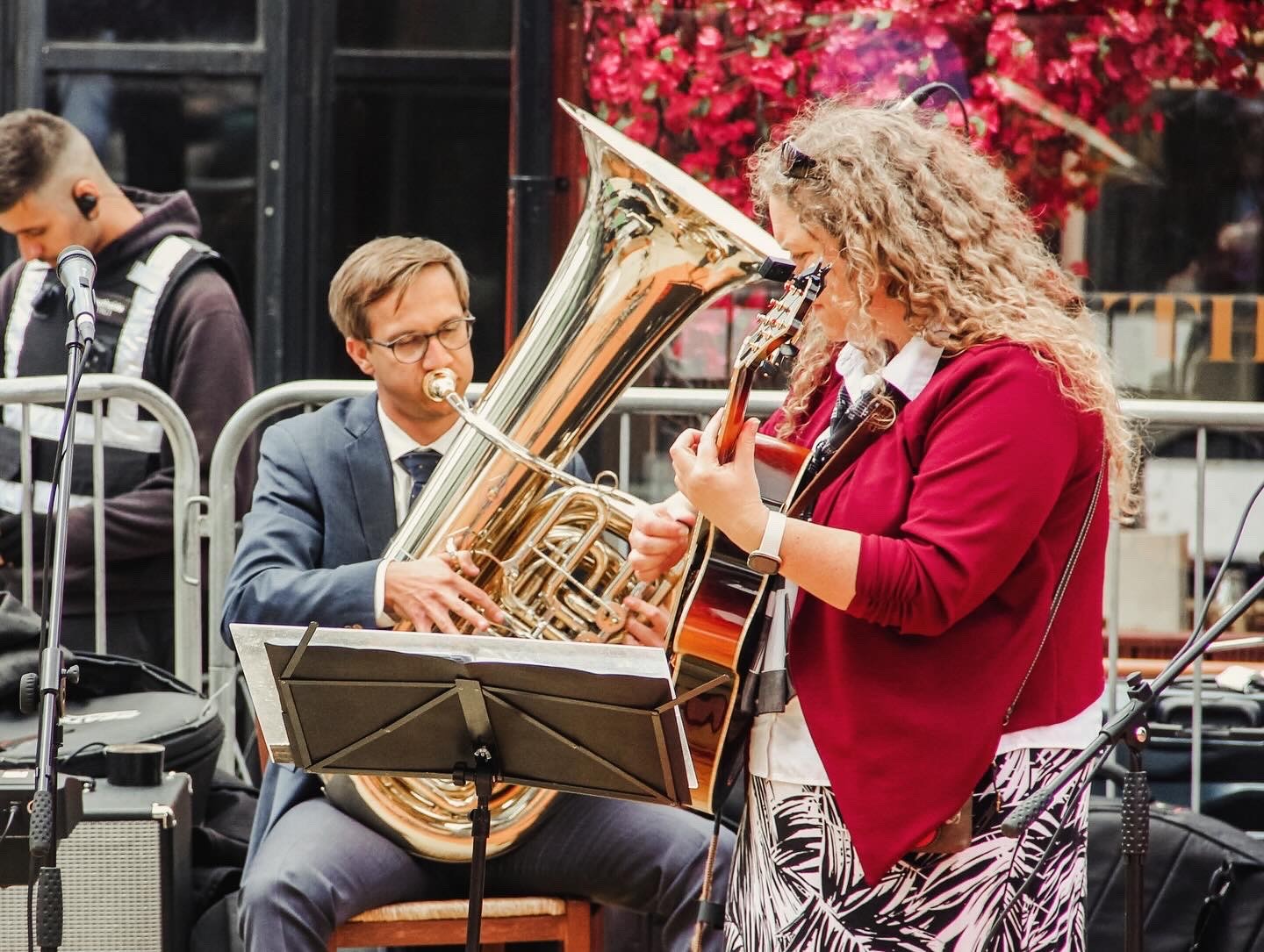
Contact Info:
- Website: samclawson.com
- Instagram: @clawmanmusic


